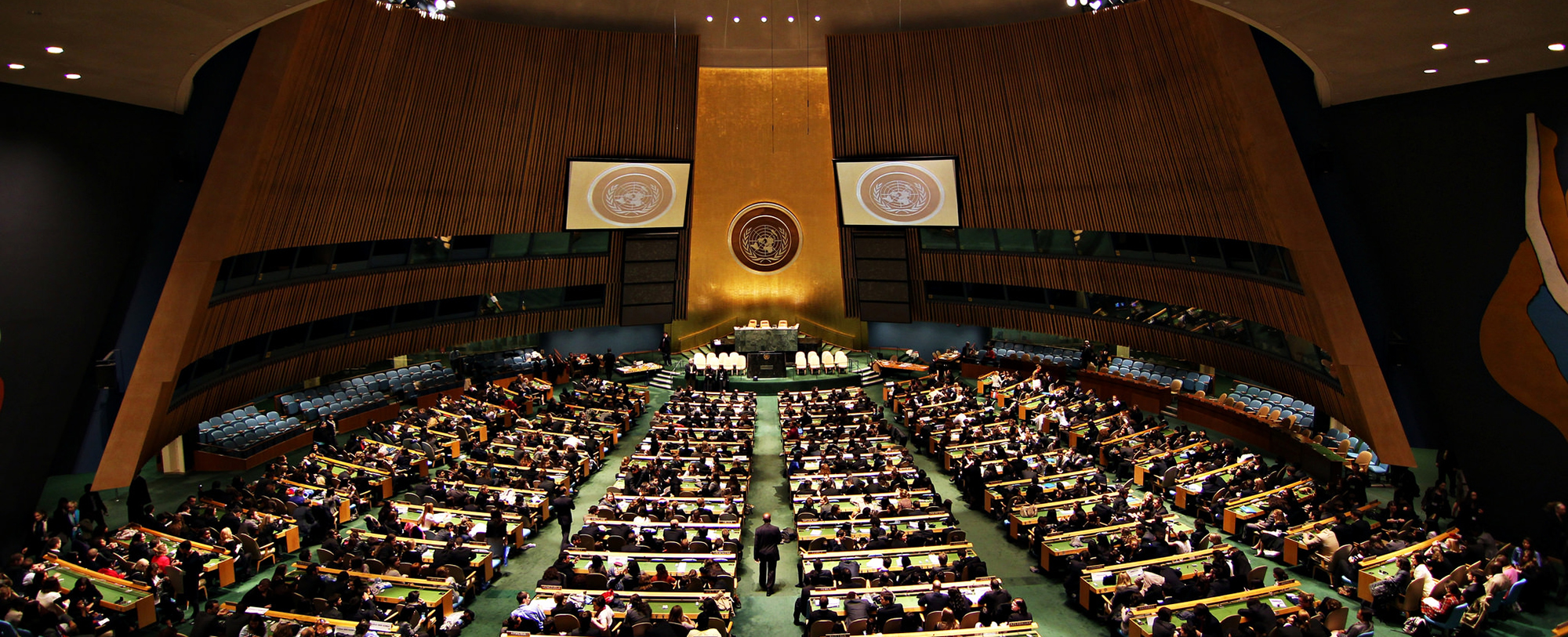.jpg)
Graduate Center for Planning and the Environment Chair Eve Baron and student Cristina Pastore, MS Sustainable Environmental Systems ’19, gave presentations at a special “Heritage for Sustainability” program held during the United Nations High-Level Political Forum 2018 in July. The Forum is held annually to review progress on the UN’s 2030 Agenda for Sustainable Development. The 2030 Agenda recognizes that eradicating poverty in all its forms is the world’s greatest challenge and an indispensable requirement for sustainable development.
The “Heritage for Sustainability” program centered on the 2030 Agenda’s Sustainable Development Goal (SDG) of making cities inclusive, safe, resilient, and sustainable (SDG 11), and brought together international experts to explore the vital connections between sustainable development and the protection of cultural and natural heritage in cities around the world. Cultural and natural heritage sites have a crucial role to play in supporting local economies, livelihoods, and quality of life, but face intense challenges from the impact of urbanization, climate change, and other factors.
Baron and Pastore were invited to participate by conference organizer Ege Yildirim of the International Council on Monuments and Sites (ICOMOS), herself a past visiting scholar at Pratt. ICOMOS has been organizing a cross-sectoral initiative to bolster support for the UN’s Sustainable Development Goals in New York City’s preservation and cultural heritage community.
Baron’s presentation provided an overview of the Graduate Center for Planning and the Environment and its work, mission, and impact, focusing on why a multidisciplinary educational approach that prioritizes local voices is critical to addressing complex issues that link urban areas around the globe. Pastore shared key learnings from the Graduate Center for Planning and the Environment program's study abroad trip to the Netherlands this past spring. Students were able to see firsthand how Dutch culture has thrived—even despite entrenched climate- and environmentally-related challenges—because the citizenry is engaged in decision-making. The objective was to understand the nexus of climate change adaptation, resilience, and preservation of built and cultural heritage.
“It was inspiring to hear from people actively working at the local level to protect the world’s natural and cultural heritage, and to add to that discussion some thoughts about how an education that teaches the next generation to use multiple perspectives is critical to addressing increasingly complex global challenges,” said Baron.
